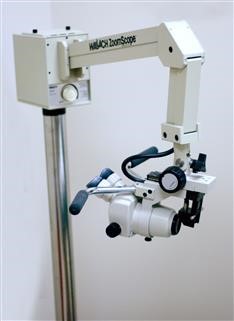The Infertility Org
Infertility Training Course in India
We have your source for total information and resources for Infertility Training Course in India on the Internet.
ART: Intracytoplasmic Sperm Injection (ICSI) (Continued) Once an egg is injected, it is observed for approximately 14 hours to see if fertilization has occurred (average fertilization rate is about 65%), and for 24 hours to ensure that cell division has started. Treatment of hydrosalpinx (distal tubal obstruction) with salpingostomy can be performed through microsurgery or operative laparoscopy. When clomiphene binds to estrogen receptors in the hypothalamus, it leads to an increase release of an important signaling hormone called GnRH (gonadotropin releasing hormone).
47 Motivational interviewing techniques for modifiable risk factors, such as obesity, tobacco, illicit drugs, and alcohol, can decrease the targeted risk factor. Luteal phase support. (and cryopreservation choice offered if good quality embryos are available) IVF/ICSI 37. Down-regulation: - to avoid premature LH surge and spontenous ovulation. - either GnRH agonist protocol or GnRH antagonist protocol. - always use GnRH antagonist protocol in women with high risk of OHSS. Primary infertility When a woman is unable to ever bear a child, either due to the inability to become pregnant or the inability to carry a pregnancy to a live birth she would be classified as having primary infertility.
More Resources For Infertility Profile Blood Test

Even more Details About Infertility Profile Blood Test
A Modern Approach to Male Infertility. (PDF, 2 MB) Serono Symposia, Insights Into Infertility Newsletter, 1997. Symptoms If a couple doesn't get pregnant after a year of unprotected intercourse, both the man and woman should be evaluated. Hypothalamic-pituitary-gonadal axis stimulatory and inhibitory signals. Diagnosis is based on history, physical examination, biochemical evaluation, ultrasonography, and laparotomy. The evaluation of the azoospermic male: AUA best practice statement.
A lot more Resources For Infertility Specialist Pretoria
Diagnosis is based on history, physical examination, biochemical evaluation, ultrasonography, and laparotomy. Problems in the uterus or fallopian tubes can prevent the egg from traveling from the ovary to the uterus, or womb. Hjollund NH, Storgaard L, Ernst E, Bonde JP, Olsen J.
Extra Resources For Infertility Specialist Pretoria
Delayed conception and active and passive smoking. Other tests include: ovarian reserve testing, to find out how effective the eggs are after ovulation genetic testing, to see if a genetic abnormality is interfering with fertility pelvic ultrasound, to produce an image of the uterus, fallopian tubes, and ovaries Chlamydia test, which may indicate the need for antibiotic treatment thyroid function test, as this may affect the hormonal balance Complications Some complications can result from infertility and its treatment. In this case, your doctor may recommend surgically extracting sperm from part of your reproductive tract to help you to conceive. Thalassemia Patients with thalassemia have ineffective erythropoiesis and undergo multiple blood transfusions. 3 Sometimes, a couple who’ve already had a child can have trouble conceiving again. Department of Health and Human Services, Centers for Disease Control and Prevention, National Center for Health Statistics. Primary infertility When a woman is unable to ever bear a child, either due to the inability to become pregnant or the inability to carry a pregnancy to a live birth she would be classified as having primary infertility. Medication. If you have ovulation problems, you may be prescribed drugs such as clomiphene citrate (Clomid, Serophene), gonadotropins (such as Gonal-F, Follistim, Humegon and Pregnyl), or letrozole. It is in fact possible to restore ovulation using appropriate medication, and ovulation is successfully restored in approximately 90% of cases. Infertility in men Semen and sperm The most common cause of infertility in men is poor-quality semen, the fluid containing sperm that's ejaculated during sex. Medications in use for this effect are mainly clomifene citrate and tamoxifen (both being selective estrogen-receptor modulators), as well as letrozole (an aromatase inhibitor.[17] Follicle-stimulating hormone (FSH), directly stimulating the ovaries. For women aged 35, about 94% who have regular unprotected sexual intercourse get pregnant after three years of trying. Practice Committee of American Society for Reproductive Medicine.
Previous Next
See also
Kaiser Infertility San Diego
Nhs Choices Infertility Treatment
Infertility Articles Pdf